What a Five-Month Stay in Floripa, Brazil, Taught Me About Life After 60
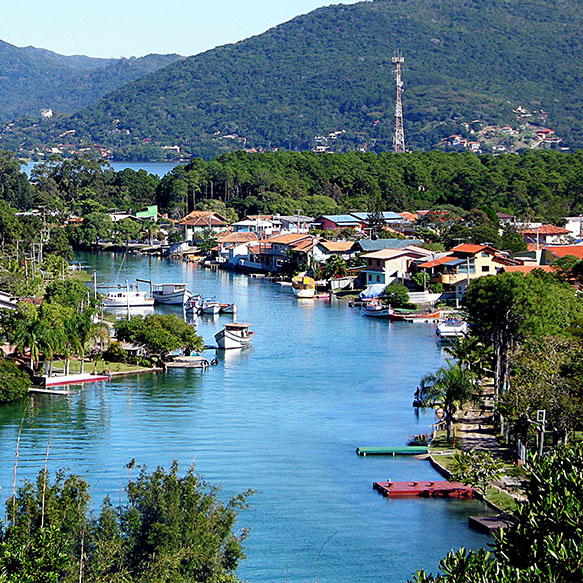
For Gabrielle Bauer, a five month adventure in Floripa, Brazil offered far more than your average beach vacation. Photo: Thiago Veras/Getty Images
Though COVID restrictions are still in place, we can travel vicariously through our contributors who share stories of how their (pre-pandemic) journeys uplifted them and, in some cases, even transformed their lives. Here, facing existential dread on her 60th birthday, Gabrielle Bauer leaves her tidy, charmed life — and her husband — for a five-month trip that changes everything.
My marriage was fine. My freelance-writing career was fine. Turning 60, not so much. I spent my birthday in bed, staring at the cracks in the ceiling. I had the flu, but the tears stinging my cheeks on that January 2017 morning had little to do with the aches in my joints.
The next day I stumbled out of bed and walked up to the globe on the chest of drawers. As I spun it around, I understood what was missing in my tidy, charmed life: adventure. When the globe stopped spinning, my gaze landed on Brazil. Samba, ocean waves, ripe mangoes. Gloria Steinem’s words bubbled up in my head: “If you find yourself drawn to an event against all logic, go.” Brazil it would be, then. And it had to be alone.
“I need this like oxygen” seemed a paltry and self-indulgent rationale to offer my husband, Drew, but it was all I had. Drew said no – no to Rio, to São Paulo, no to Salvador. Too dangerous. Thousands of homicides per year, drugs, gangs, knifepoint attacks. But he didn’t say no to the idea. He understood the life script we had been following, while deeply gratifying, lacked the fuel to take me to the finish line.
While I would have preferred to go away for a year – the amount of time I had spent as a single woman in Tokyo, 27 years before – Drew and I settled on five months. The island city of Florianopolis, hugging Brazil’s southern coastline, met his safety standards, and Google’s description of the city – surf and sand, wooded trails, aging hippies – promised the variety I craved.
I held my breath when I informed my clients that I would be gone for five months. Though they assured me they wouldn’t cast me aside, I knew I was taking a risk. Even so, I never considered turning back on the idea. Oxygen.
Next up: learning Portuguese. A friend sent me a magazine article claiming that people over 50 couldn’t hope to achieve fluency in a new language, which inspired me to prove her wrong. If Meryl Streep could do all those fancy accents, surely I could master the ão nasalization. After blasting through the online language-learning program Duolingo, I scoured Facebook groups to find Toronto-based Brazilians who wanted to practise with me. Six months later, my new-found friends declared me ready for their country.
When Drew and our two children waved me off at Toronto’s Pearson airport a week before Christmas, I had the sense of swimming against a biological tide. Wasn’t I supposed to stand back as the kids set off on their grand adventure, teaching English in Seoul or trekking across the Andes? I couldn’t even answer the question, posed by several puzzled relatives, of what I was going to do in Brazil. I just knew that my mental health depended on going.
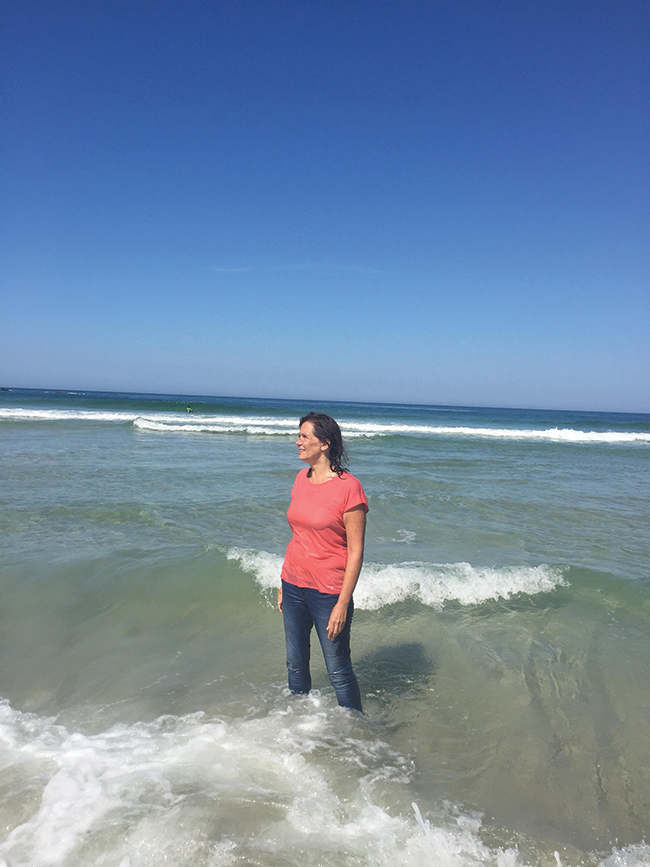
Due to its unusual topography, Florianopolis (or Floripa, as Brazilians call it) is more of a collection of villages than a standard city. I spent the first week exploring the island, alternating between elation and bliss. Who cared that my Airbnb room was only 50 square feet and my housemates were less than half my age! Who cared that I almost stepped on the two-inch cockroach in the shower! I was here, here, here.
Panic caught up to me the day before Christmas. Who on earth was I kidding? I was 60, almost 61. I had ropey bands on my neck and varicose veins on my shins. Nobody would be interested in meeting me, befriending me, letting me into their lives – not here in Brazil, where youth was a science and people “refreshed” their breasts and butts as one might a summer wardrobe.
I couldn’t have been more wrong. It was ridiculously easy to make friends here. Everyone burned with curiosity about this tall, strange gringa who had learned Portuguese at 60, who had a wedding ring on her finger and no husband in sight. How old are you? What sign are you? (Zodiac signs, I quickly learned, were a big deal in Floripa.) How old are your kids? Does your husband mind that you’re here on your own? He must be a saint. If it were a Brazilian man, he wouldn’t last more than two days before finding a substitute.
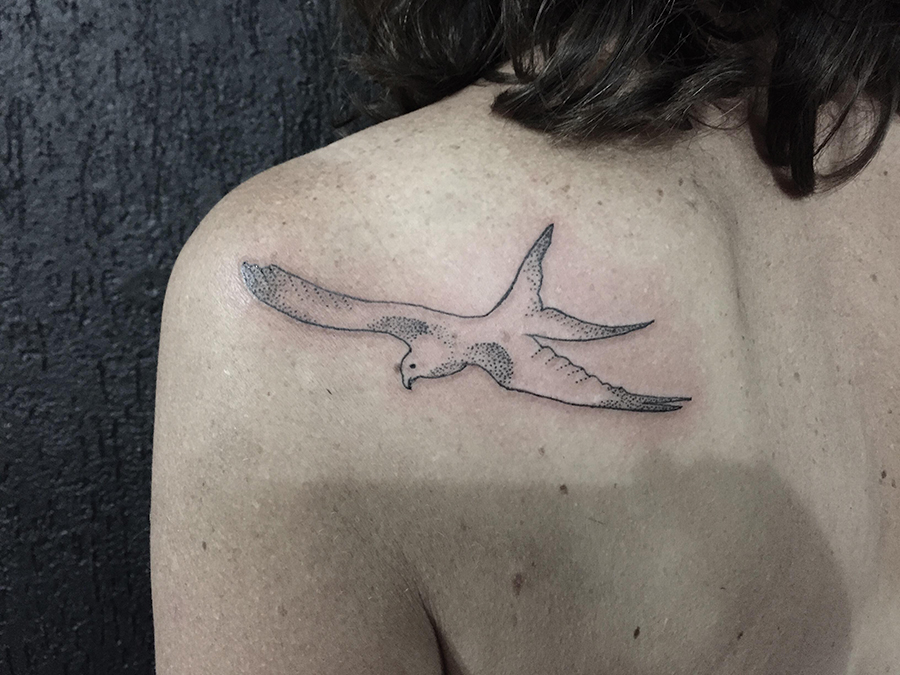
One day, while I was riding the bus toward one of the outlying villages, I fell into conversation with the woman sitting next to me, who introduced herself as Rozeni. She had strawberry-blond hair and the palest eyelashes I had ever seen. We got so deep into our chat – her fibromyalgia, my Jewish background, Canadian winters – that I missed my bus stop. “Why don’t you join me?” she asked. “I’m about to attend a special ceremony.” A half-hour later I was sitting on a chair with about 20 other people, chanting nam myoho renge kyo while a broad-faced man laid his hands on Rozeni’s shoulders and welcomed her to the Nichiren Buddhist sect.
Becoming friends with Rozeni meant befriending her gaggle of friends, who insisted on inviting me to their backyard yoga classes and “conscious dinners,” where guests ate vegan cheese curds with their fingers while blindfolded. Just like that, a social circle.
When Rozeni first told me about ayahuasca, I hesitated. This brew of shrub leaves and vine stalks, typically taken as a tea, has what Western science calls psychoactive properties. Rozeni preferred to call it an entheogen – a sacred potion that opened the mind and heart to the divine. Just one problem: it made you throw up, sometimes violently. While the thought of a group retching session put my sense of disgust in overdrive, I had promised myself to accept all offers that came my way, so when Rozeni invited me to an all-night ayahuasca ceremony, I clutched my stomach and said yes.
I was the only non-Brazilian among the 13 participants at the ceremony, which began at sundown in a dim room with floral sheets drooping from the ceiling. The leader, a shaman who went by Ben-Hur and whose dreadlocks roped down to his hips, asked us to queue up to receive our first dose of the tea.
The tea tasted vile, but I copied the other participants and glugged it down without a pause, then limped back to my yoga mat. Ben-Hur put a tambor xamânico between his legs and began chanting and drumming. Pleasing geometric shapes danced in front of my eyes and, for a few brief moments, everything seemed right with the world. Maybe I could tame my stupid little ego. Maybe I could love more and love better.
Every once in a while, someone would lean over their plastic bucket to fazer limpeza, or “do a cleansing.” When the nausea hit me, there was nothing to do but join the fray. We took our second dose of aya just before sunrise.
Something shifted in me after that night: I had the sense that Floripa had claimed me as one of its own. The feeling grew even stronger when I signed a lease on a kitnet (a.k.a. bachelor pad), which would carry me to the end of my stay. I was no longer a visitor. I lived here now.
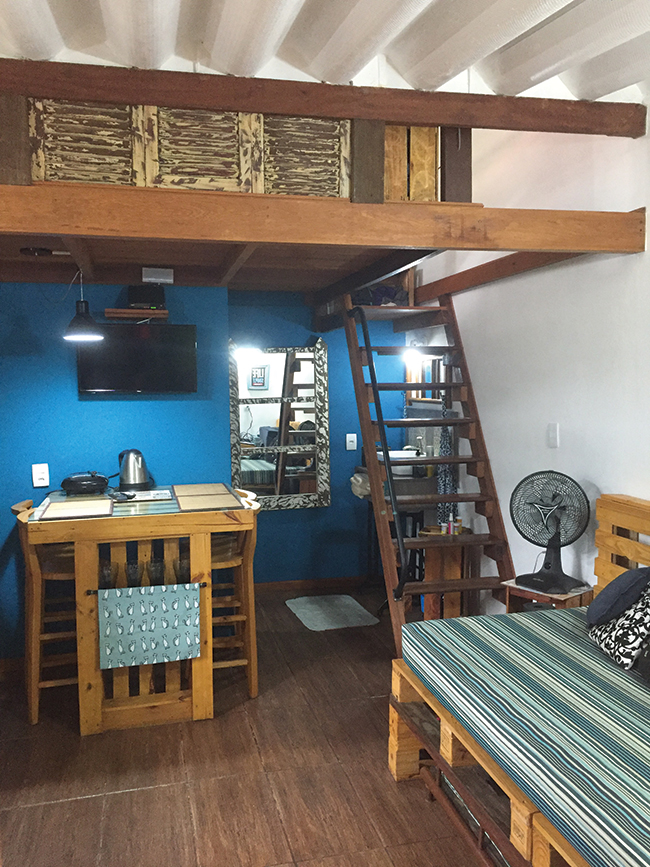
Friends kept blooming around me. There was Romeu, a troubadour musician who treated me to a private concert on my front patio. Fernando, who challenged me to try surfing. (“Epic fail” just about covers it.) Jerusa, who schooled me in Brazilian politics and made me caipirinhas with the acerola cherries from her backyard.
I video-chatted with Drew every two or three days: love you, miss you, wish you were here, kiss kiss. But while his tiny WhatsApp face warmed my heart, I didn’t, in truth, wish he were with me. Fending for myself on the other side of the world was so damned interesting that I didn’t have time to miss anyone.
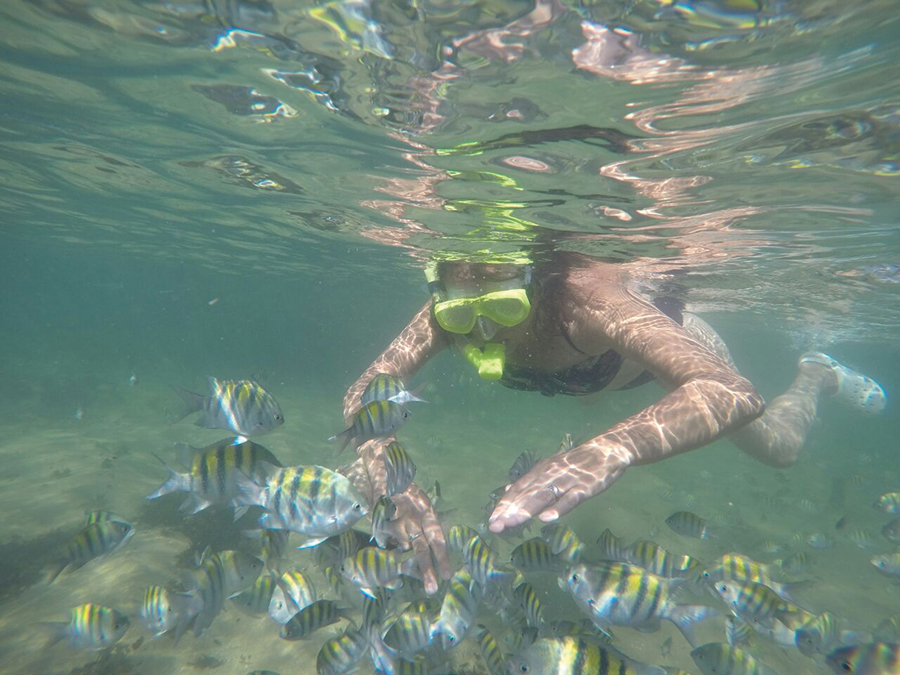
Was Drew a saint? I rolled the question over in my mind. I knew it wasn’t easy for him. Toronto was having a brutal winter, and he admitted the days and nights had never seemed so long. On the other hand, Drew and I had promised to help each other achieve our dreams, even if it meant uncoupling from time to time. He was merely fulfilling his promise to me, and I knew I would return the favour if asked. On most days, I was able to push the finger-wagging relatives (“What kind of a wife does that?”) from my mind.
And then Luiz showed up in my life. He had a greying beard and a baseball cap that never came off his head and called himself an anarchist – my lifelong weak spot. We sat on the stones at the top of the Boa Vista trail, taking in the 360-degree view of Floripa’s coastline, sharing a half-litre of Chilean Merlot while I studied his profile.
Drew and I had agreed that our bond was strong enough to withstand a flirtation or two. Neither one of us would go looking for trouble, but if trouble found us – a stray kiss, a massage, perhaps even a happy ending – it wouldn’t undo our marriage. When Luiz told me that “we could have been more than friends, had we met at a different time,” I heard the soft thud of closure. He had spared me from myself, while showing me that I could still stir a human heart.
Local lore had it that Floripa either embraced or expelled people, and I marvelled at my luck in being one of the chosen ones. Perhaps not all of it was luck, though. All those hours studying Portuguese had paid off a hundredfold. The language had let me into my friends’ lives, into their dreams and fears and frustrations with their own country. Although my initial goal of “sounding like a native” proved a tad over-ambitious, I was able to share stories, laughter and tears with my friends – and, yes, to master that tricky ão sound.
When I boarded the plane back home, my heart already ached with saudades for Floripa and for the person I had become there. After this insane adventure, made all the more improbable by my age, how would I adapt to normal life again?
I needn’t have worried. Brazil wasn’t going to release me so easily. Over the ensuing weeks and months, my Floripa friends held me close with texts, video chats, corny emojis and invitations to visit again. My Brazilian network in Toronto grew strong roots as well, with each friendship tumbling into several more, ensuring that Portuguese still rolled off my tongue.
Two years later, in March 2020, I couldn’t stand it any longer and flew back to Floripa, with three weeks of glass-clinking reunions stretching ahead of me. And then COVID-19 rolled in and I watched Floripa fold in on itself: coffee shops, beaches and friends all suddenly out of reach. I heard the bewilderment in my friends’ voices as they faced the prospect of not hugging or dancing for the next long while.
Rozeni offered to let me ride out the pandemic at her place, with her backyard rabbits and vegan cheese and stray lodgers. “At my house we still hug,” she said. I can’t say I wasn’t tempted, but reality caught up with me, and I booked full-price plane tickets back home.
This time I didn’t worry as much. I knew that Brazil would get on the plane with me and keep me company in Toronto while I awaited my next chance to hug my Floripa friends. I was already fantasizing about returning in 2021 to complete what the pandemic had interrupted. I would invite Drew this time, so he could finally meet the people who had rocked my world. He would say no, of course. He is all kinds of wonderful, but a traveller he is not. Portuguese and bossa nova and the open sea don’t call to him as they do to me.
He would say no but he would wave me off at the airport with a smile. Our marriage was settling into a new shape, molding itself to my itchy feet and Drew’s steady ones. At the same time, I was coming to understand that creative living didn’t depend on taking off somewhere.
My life in Toronto didn’t have to shrink back to writing deadlines and kitchen renos and Netflix. What my time in Brazil has taught me was that, as long as I drew breath, life held surprises.
A version of this article appeared in the Jan/Feb 2021 issue with the headline “The Brazilian Cure,” p. 86.
RELATED:
Soaking Up Heritage and Culture Amid the Hot Springs in New Zealand’s North Island